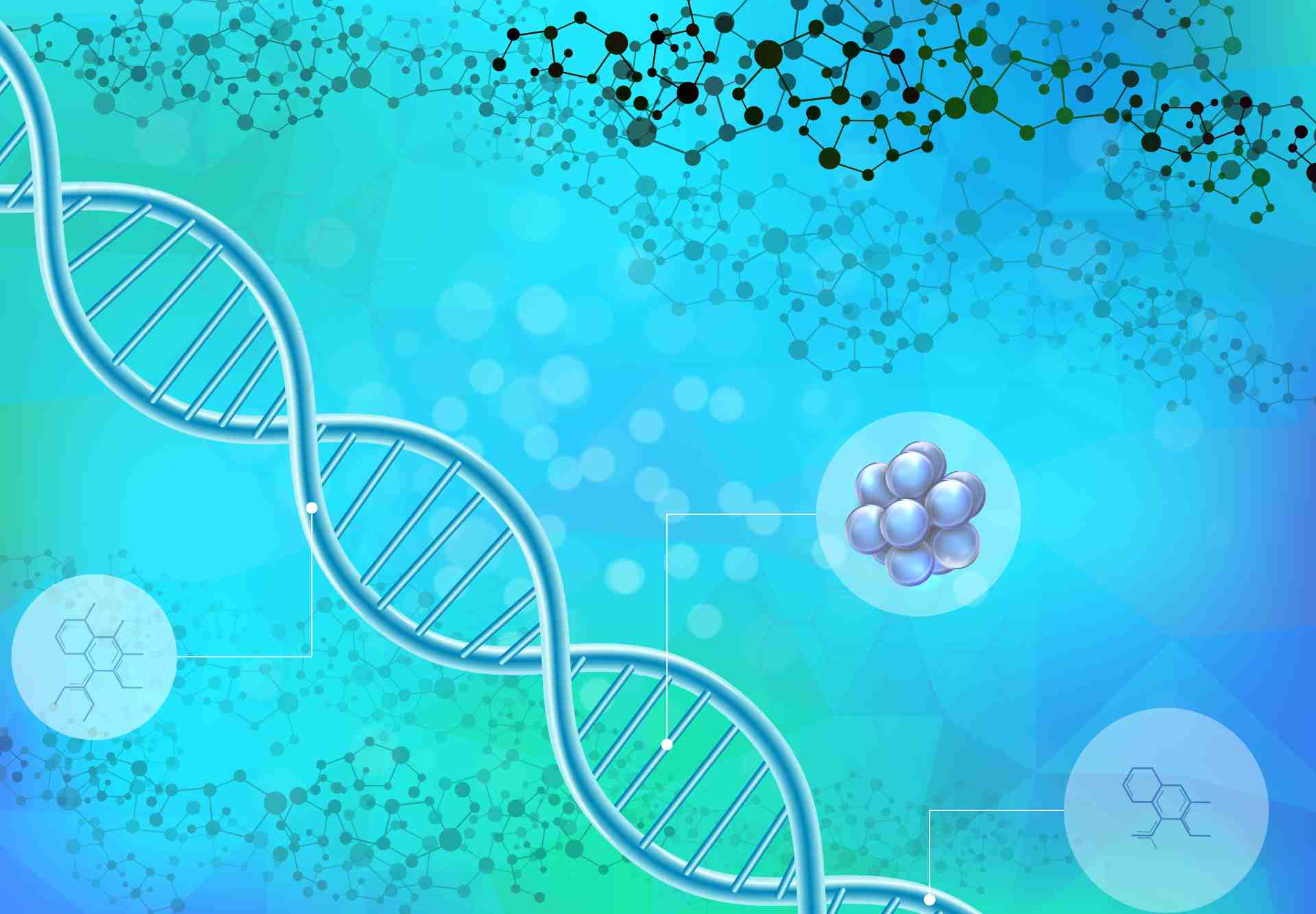
By Dr. Brandon Colby MD, an expert in genetic testing, DNA analysis, and personalized medicine.
Summary
In the last article, we covered what genealogy means and how it has grown into one of the most popular hobbies in the world. In this article, we'll discuss one of the most important parts of genealogy: ancestry DNA tests.
Continue reading to learn more about what an ancestry DNA test is, the reasons why you may want to take such a test, and very important information about the accuracy of these types of tests.
Table Of Contents
- Introduction To Ancestry DNA Tests
- Genetic Ancestry Testing
- Average Ancestry DNA Test Cost
- Best Ancestry DNA Test
- What to Do with Ancestry DNA Test Results
- Buy an Ancestry Test Kit
- References and Sources
Introduction To Ancestry DNA Tests
Have you ever wondered whether it was possible to discover which ethnicities make up your genetic background, down to the percentage that each of them represents? Or to build a genealogical tree that said exactly where your family comes from?
Some of us know a bit about our ethnic background thanks to the information provided by other family members. But even in these cases, there’s always the possibility that there are hidden facts in our ancestry that we’ve never heard about. What if you turn out to be descended from Genghis Khan? Maybe you want to discover whether you have Asian, Native American, or African ancestry?
In other instances, we really don’t know much about our ancestry or ethnic background. When this information has been lost to our family, it can be very complicated to find out where your genes come from — especially considering that nationality and ethnicity don’t necessarily go hand in hand.

Learning about your genetic makeup can be fascinating. It’s a perfectly normal — and actually, quite common — the human desire for you to want to learn more about your genetic roots. Our genes connect us to our past and to our identity as humans. From the time of ancient prehistoric civilizations to modern-day ethnic groups, many of us find meaning in discovering where we come from.
But even though discovering your exact ancestry could prove to be an impossible task in the past, modern genomics and genetic testing have made it possible to discover your ethnic background using a simple saliva sample.
However, it’s important to be able to identify genetic testing companies that provide high-quality and trustworthy results. If you’re going to entrust your genetic information to a testing provider, you should be able to rely on them and feel confident that your information will be safe.
Now, let’s discuss ancestry DNA tests, reasons to take an ancestry test, and their accuracy in more detail.
Genetic Ancestry Testing
Genetic genealogy is the practice of using DNA testing in combination with traditional genealogical research methods in order to produce a more detailed family history.1
Direct-to-consumer DNA tests are still a relatively new technological development — it was only in the late nineties that the first commercial DNA tests were made available by the company GeneTree. However, the company reported that most of the DNA tests they performed were used to prove paternity.
As DNA science evolved and bioinformatics companies developed new technologies, it became possible for companies to provide advanced tests that only require a simple mouth swab sample, which you can take yourself at home.
In 2007, 23andMe became the first company to offer direct-to-consumer autosomal DNA tests. Afterward, many different testing companies started offering ancestry DNA tests. As of today, millions of people have taken a genetic genealogy test to determine their ancestry.
DNA genealogy has become very popular in recent years. The information obtained through these tests can be used for many purposes, including:
-
Research your family history
-
Assess race-related health risks
-
Study human migratory patterns
-
Assist in law enforcement investigations
-
Establish legal inheritance
Modern genetic ancestry tests are so thorough that they can go back generations and even tell you whether you have inherited DNA from prehistoric humans, and exactly how much.
This is because ancestry DNA tests can reveal if you have Neanderthal or Denisovan DNA. Neanderthals populated Europe and Western Asia up until approximately 400,00 years ago, while Denisovans lived in Asia. Research has shown that, for some time, modern humans overlapped with these prehistoric humans and had children — as a result, some of us still have small amounts of DNA from these ancient species.2
In fact, modern day people of European or Asian ancestry can have 1 to 2 percent of Neanderthal DNA, whereas that percentage is practically zero for people of African ancestry.
As more people have their DNA studied, it’s very likely that our understanding of ancestry and DNA will become deeper. Who knows what we might be able to learn from our genetic information in 20 years?
How Accurate Is DNA Testing for Ancestry

The accuracy of different ancestry DNA tests will largely depend on the company that provides them, and the type of technology that they employ.
In most cases, ancestry testing works by finding single nucleotide polymorphisms (SNPs) in your DNA, and comparing them to DNA that are frequently found in other ethnic groups to determine ethnicity estimates. Your DNA can also be compared to data sets that are already recorded in order to find possible relatives and common ancestors.
The accuracy of ancestry DNA tests relies largely on the databases that are used as comparison points for your sample. Companies that test your genetic information against larger DNA databases will be able to provide more accurate and exhaustive results, as opposed to companies that only have access to smaller databases.
It’s also important to establish which lines of your family tree will be analyzed with each test. If you’re using a Y-chromosome DNA test or a mitochondrial DNA test, you need to be aware of the fact that only one of your parental lines will be tested.
Y-DNA and mtDNA are haplogroups, which are haplotypes or groups of alleles that we inherit from only one of our parents. As a consequence, you won’t be receiving results that cover the entirety of your genetic ancestry.
Average Ancestry DNA Test Cost
As modern DNA testing has become more automated, faster, and less labor-intensive, it has been possible for companies to offer direct-to-consumer genetic tests at a lower price point. Nowadays, it’s incredibly easy to purchase a DNA testing kit for yourself or someone else — you can even find them on Amazon!
The cost of DNA ancestry tests can vary depending on your country, but testing companies offer prices ranging anywhere from $39 to $200. The average price for a basic kit is around $79 to $99. Keep in mind that it’s not infrequent for these prices to only cover basic testing, and for companies to offer more comprehensive testing for additional fees.
Other types of testing, such as whole genome sequencing, are more expensive at around $400; however, these tests analyze your entire genome and thus provide results that are much more detailed and trustworthy.
Is There a Free Ancestry Test?
Any type of DNA test requires the use of modern technology and equipment to analyze raw data and turn it into a comprehensive report. So it shouldn’t come as a surprise to hear that, even though some websites offer free ancestry tests online, these tests aren’t ever truly “free”.
Some testing companies offer “free DNA tests”, but there’s always a catch. In some cases, they will offer you a free DNA testing kit, but you will still have to pay a fee in order to have your DNA sample analyzed and to access genetic reports. So while the test kits are “free”,
There are some projects that offer free genetic testing, but in these cases, the tests are provided as part of various clinical research projects. As part of the agreement, project organizers pay for the tests, but they also have access to your DNA test results.3
Best Ancestry DNA Test

Some of the most popular DNA testing services include:
-
Ancestry.com or AncestryDNA
-
Sequencing.com
-
23andMe
-
FamilyTreeDNA
-
Living DNA
-
Genebase
-
African Ancestry
-
TellmeGen
-
HomeDNA
-
Nebula Genomics
-
DNALand
Each company takes raw DNA samples and analyzes them using different types of genomics technology. The depth of your results will vary depending on the type of genetic test used to analyze your sample.
In addition to identifying the type of test that each company uses, you should also look for information regarding their privacy policy to make sure that your DNA test is safe.
Your DNA data is extremely valuable, and you should look for companies that can ensure that your privacy will always come first. Legitimate DNA testing companies won’t sell your DNA information nor share it with other parties without your consent.
Let’s go over some of the most popular types of DNA tests that can be used to determine your ancestry:
Autosomal DNA tests
Ancestry.com, MyHeritage, 23andMe, FamilyTreeDNA, and LivingDNA, among others use autosomal DNA (atDNA) testing. These companies can also use triangulation algorithms to identify which specific regions of your DNA belong to your maternal and paternal line.
Autosomal DNA tests are highly accurate, but due to the nature of DNA inheritance, they can only find family members within six generations of each other. To discover familial relationships extending further back than that, it’s necessary to collect information from several family members.4 Analyzing genetic data accurately becomes even harder in endogamous populations where members share many genetic markers.
mtDNA and Y-DNA testing
Other companies use mitochondrial DNA (mtDNA) and Y-chromosome (Y-DNA) tests. mtDNA tests your maternal line, whereas Y-DNA analyzes data from your paternal line — Y-DNA tests can only be performed in males. If a woman wants to study her paternal line, she needs to ask a male relative to get tested and infer her own paternal ancestry from her male relative’s results.
Although these tests can accurately determine whether two people are related through one of their parental lines, it can be more complicated to establish the exact degree of genetic linkage between them. In some instances, it’s nearly impossible to determine who was the common ancestor between two people.5
Additionally, doubts have arisen over whether some of these companies analyze enough DNA markers to provide accurate results.6
Whole genome sequencing (WGS)
Whole genome sequencing (WGS) is another type of DNA testing that can be used to determine your ancestry. Rather than analyzing specific regions of your DNA data, WGS sequences the order of all the base pairs that make up your DNA. As a result, WGS can analyze your entire genome and provide valuable information about many different areas of your life, health, and ancestry.
DNA sequencing could be the best type of ancestry DNA test for those seeking to get a high-quality genetic genealogy test, since it provides information surrounding many other aspects of your life without having to take additional tests.
What to Do with Ancestry DNA Test Results
Depending on the type of DNA test that you decide to get, you’ll receive a varying amount of information contained in genetic reports. Most testing companies will provide reports that will inform you of your ethnicity estimate and ancestry results. Many websites will also allow you to upload these results to their platforms in order to create your own family tree, and possibly connect with distant relatives who have taken genetic tests and whose DNA matches yours.
In fact, many testing companies provide a list of “DNA cousins” along with your report. Keep in mind that cousin matching isn’t 100 percent accurate, and sometimes the exact degree of genetic relationship between two individuals can be hard to determine through a DNA test alone.
In many cases, DNA test results can be combined with traditional genealogy methods in order to truly assess genetic linkage between different people and build an accurate family tree. If you don’t know how to use traditional genealogy, there are many online resources and genealogical societies that can serve as a starting point in your research.
You can also upload your DNA test results from a third-party provider to Sequencing.com for free to be able to access high-quality, detailed ancestry reports.
Our ancestry reports include the DNA Ancestry and Genealogy Report and the Genetic Ancestry with Haplogroups Report. Our specialized ancestry reports and genealogy apps contain accurate ethnicity estimates, insights about your genetic ancestry, and even information about historical figures to whom you may be related to.
Buy an Ancestry Test Kit

You can get different ancestry tests right here at Sequencing.com. We offer our Ultimate DNA Test for just $69; this test obtains data from all your DNA (including atDNA, Y-DNA, and mtDNA), and it tests approximately 30 million genetic variants. This amount of genetic markers represents more than 50 times the amount of data analyzed by other providers, such as 23andMe and Ancestry.com.
You could also get our Ultimate Genome Sequencing for $399. Even if this test seems to be slightly more expensive than a common ancestry DNA test, it’s also far more comprehensive. Through Sequencing.com, you will also be able to access a vast range of different DNA reports and apps.
The Ultimate Genome Sequencing uses 30x clinical-grade whole genome sequencing to test your DNA. In addition to providing detailed results about your ancestry, this test can also:
-
Assess your risk of developing preventable diseases
-
Determine whether you carry genes for rare diseases
-
Evaluate your wellness and general health
-
Provide insights and recommendations to improve your lifestyle
-
Ascertain your likelihood of developing adverse reactions to medications
-
Connect you with potential relatives
-
And much more!
Ready to learn more about DNA tests? Read our helpful Guide To DNA Tests.
References and Sources
- What is genetic ancestry testing? Medline Plus. Retrieved January 27, 2021.
- What does it mean to have Neanderthal or Denisovan DNA? Medline Plus. Retrieved January 27, 2021.
- Free DNA tests. International Society of Genetic Genealogy Wiki. Retrieved January 28, 2021.
- Autosomal DNA. International Society of Genetic Genealogy Wiki. Retrieved January 28, 2021.
- Royal, C. D., Novembre, J., Fullerton, S. M., Goldstein, D. B., Long, J. C., Bamshad, M. J., & Clark, A. G. (2010). Inferring genetic ancestry: opportunities, challenges, and implications. American journal of human genetics, 86(5), 661–673. doi:10.1016/j.ajhg.2010.03.011.
- Jaffe, J. Best DNA test for 2021: AncestryDNA vs. 23andMe and more. CNET. Retrieved January 27, 2021.
About The Author
Dr. Brandon Colby MD is a US physician specializing in the personalized prevention of disease through the use of genomic technologies. He's an expert in genetic testing, genetic analysis, and precision medicine. Dr. Colby is also the Founder of Sequencing.com and the author of Outsmart Your Genes.
Dr. Colby holds an MD from the Mount Sinai School of Medicine, an MBA from Stanford University's Graduate School of Business, and a degree in Genetics with Honors from the University of Michigan. He is an Affiliate Specialist of the American College of Medical Genetics and Genomics (ACMG), an Associate of the American College of Preventive Medicine (ACPM), and a member of the National Society of Genetic Counselors (NSGC).